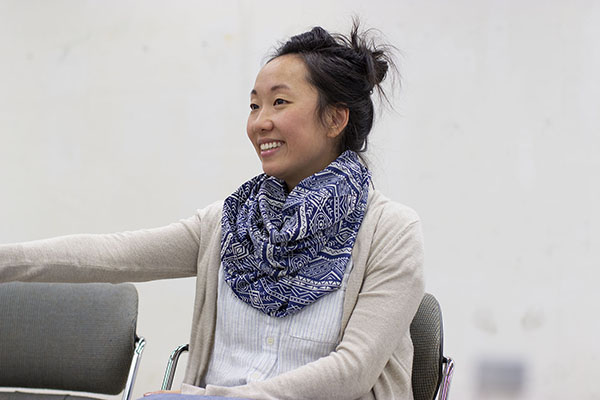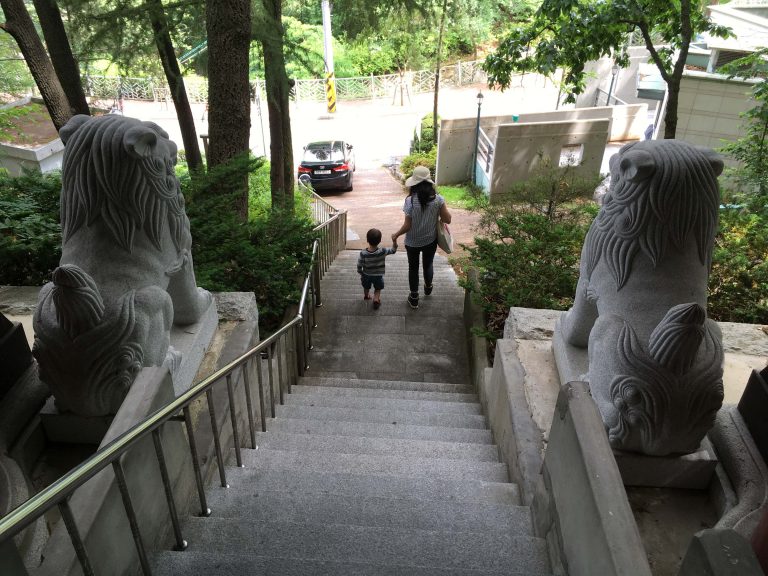Motherland, a Series of Paintings by Mary Laube

In the years following the Korean War, the US saw an influx in international adoptions of South Korean children. Mary Laube, assistant professor of painting + drawing, traveled from Seoul to Chicago, Illinois in 1987 at the age of 2 where she was adopted by her parents.
Although Laube grew up in a culturally diverse city, she grew up in a predominantly white neighborhood and school. Her adolescent understanding of Korean culture came from events hosted periodically in the Chicago area.
While pursuing her undergraduate art degree at Illinois State University, Laube began heavily researching Korean art, paintings, and objects. Her drawings and prints focused on architecture observed in Korean scroll paintings. One day, during a studio visit, a visiting artist said to her, “just because you’re Korean does not mean you have to make work about being Korean.”
That comment liberated Laube.
“I had to come to terms with the fact that I was different despite the “color-blind” culture I was raised in. While I consider myself to be extremely lucky, it was still difficult to sift through this without any ties to my cultural origins.”
“Her words have really shaped my teaching to this day. You don’t have to make work about your otherness. If you are different in some way, it’s easy to feel pressured to be the voice of that difference. At the time, I decided that I wasn’t going to force this in the work.”

Laube walks with son, Jacob, in Seoul, South Korea in Summer 2019.
Almost ten years later, Laube began revisiting her own immigration story and how it connected to South Korea’s political narratives through paintings after the birth of her first child, Jacob.
“I grew up not looking like anybody in my family, and all of a sudden here’s this little person that looks just like me. It was an exciting new experience, and the daily confrontation with seeing my own face in my son seeped into everything I was thinking about.”
In 2018, she received a Sustainable Arts Foundation Award and UT’s Professional and Scholarly Development Award to fund her project, later titled Motherland, to travel to Seoul, South Korea for six weeks during the summer of 2019. It was Laube’s first trip back to the country since her adoption.
“I was mining copious amounts of information from museums, folk villages, temples, and historic landmarks through drawing and photography. The tourist element to my trip was significant in illuminating the fissure between myself and my birthplace. At the same time, I saw the research as a kind of long-awaited conversation with my ancestors.”
Laube spent the majority of her trip examining objects from the more than 6,000-piece collection at The National Museum of Korea. Since returning, Laube continues to fill sketchbooks with drawings representing the artifacts she documented. The project has resulted in 10 paintings thus far.
“My process has been very intuitive. I begin working rather closely with a source image or drawing. However, in the end the work becomes heavily abstracted, which is really important. I feel like I’ve only dipped my toes in the water and I hope to return again in the future for a longer period of time.”
Laube presented her research as a part of a panel on global art projects at the 2019 SECAC Conference hosted by the University of Tennessee, Chattanooga. Motherland culminated in a solo-exhibition at Whittier College’s Greenleaf Gallery just outside of Los Angeles.